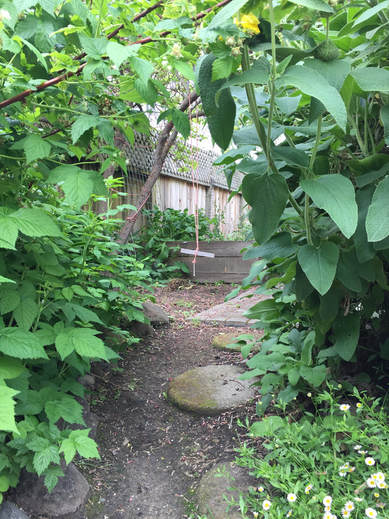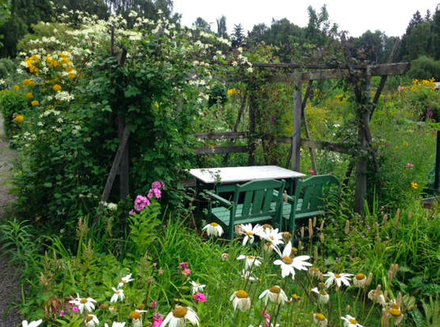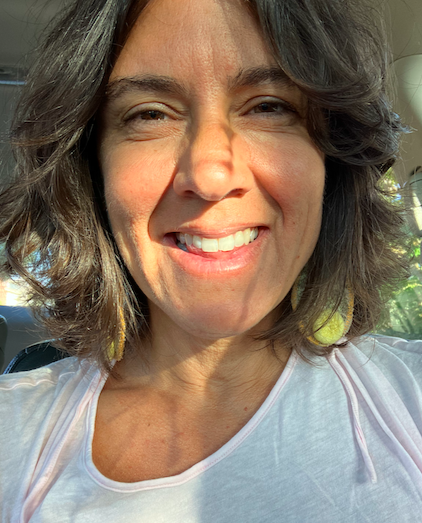|
As published by the Findhorn Foundation. Have you ever wondered what life on Planet Earth might be like in 100 years, when maybe, just maybe, humanity has reached a point of valuing spiritual intelligence (SQ) as much as we seem to value rational intelligence (IQ)? We have barely begun valuing emotional intelligence (EQ) so how long might it take before we value what is seen as yet another essential leap into the intelligence and potential of humanity — spiritual intelligence? With the future being unpredictable, that question may be less helpful than those presenting themselves more readily in the here and now. What is SQ? And as for our own inner questioning, how does each of us embrace it more fully in our own lives?  Exhibiting how humanity is grappling with this relatively new area of study, many definitions have been presented for SQ. Whereas IQ is associated with the left brain and EQ is associated with the right brain, SQ is noted as a “third way” of human intelligence, including elements of the intangible or immeasurable aspects of living in a human body. Perhaps the most succinct definition comes from Richard Griffiths, former National Chairman of the Transpersonal Psychology section of the Australian Psychological Society, who says, “Spiritual intelligence equals IQ and EQ exercised with presence.” Griffiths defines presence as the movement of awareness from ego to soul. Coming from ego, we tend to focus more on fear, short term vision, our limitations, and seeing ourselves as small or insignificant — even if that small sense of self is sometimes masked by conceit or arrogance. Coming from a sense of soul means our view is more vast. We see ourselves as part of a great web of life, relationships, patterns, all of which are significant in their impact on the world we live in. The term Spiritual Intelligence was coined in 1997 by Danah Zohar when she introduced the concept in her book Rewiring the Corporate Brain. In this book Zohar explores the implications of SQ and other sciences that were new at the time, relating them directly to organisational problems and challenges faced by corporate leaders. She wanted to illustrate how humans can exercise full creative capacities, rather than making IQ the indisputable heavyweight among our intelligences. Considered one of the world’s greatest thinkers in the realm of management, Zohar studied Physics and Philosophy at MIT and did her postgraduate work in Philosophy, Religion and Psychology at Harvard. To be clear, definitions of SQ note that spirituality is distinct from religiosity, equating SQ with existential intelligence. In his 2004 book The 8th Habit: From Effectiveness to Greatness, Stephen Covey wrote, "Spiritual intelligence is the central and most fundamental of all the intelligences, because it becomes the source of guidance for the others." While there is yet no universally accepted method of measuring SQ, there are many well developed tools. Principles and measurement criteria found in them include: valuing other people for their differences, not despite them; self-awareness; spontaneity; positive use of adversity; bilateral respect in our relationships; maintaining a sense of tranquility regardless of workload; the ability to utilise spiritual resources to solve problems, and; ego self mastery. One assessment tool which has been tested and also cross-correlated with an instrument from Harvard University is called SQ21. It uses a framework of 21 skills to map strengths and identify development areas. The Findhorn Foundation will be hosting a workshop in June 2018, Next Level Leadership, that uses this model, giving participants a full assessment. What becomes possible when we amplify our own spiritual intelligence? Reflecting on how SQ might have touched my life, I am reminded of a noteworthy moment in 1997 during my last year of college when something called to me about Hawai’i. From someplace deep within me, I wanted to go. And I wanted to go all by myself. In my mind I recalled images of endless, lush greenery. Specifically Kaua’i, I had heard, was “the most beautiful place on Earth.” Some close friends had traveled alone, but in my family this wasn’t common for a person my age. My sister was concerned. My dad was concerned. I was cautioned against it. Still I felt called to go. And while there were left-brain (IQ-related) reasons supporting my longing — such as the knowing that it was part of the USA, my own native country, and that the main spoken language was English — I could have also followed the advice of the TV media. Don’t travel alone; it isn’t safe; stay close to home; bad things happen to good people. What if…? What if…? What if…? Those messages simply didn’t resonate. There was a tug too strong in my heart, an instinctual tug, that urged me to listen. From an EQ perspective, my feeling of trust that it would work out just fine, took centre stage. Very clearly there was a feeling in my heart that knew I was safe. Perhaps my intuition and soul awareness, both aspects of SQ, intermingling with IQ and EQ in the dance of this decision, were what allowed this to become a defining moment in the rest of my life. Sure enough, though I stayed only with ‘strangers’ and went with very little money, it took less than a week for one of the most life changing experiences of my life to occur. Almost as in a dream state, I found myself sitting in the living room of a man who is internationally renowned for his spiritual clarity, a teacher of forgiveness, who ended up being a dedicated spiritual mentor and friend to me over the last 20 years. Something tells me it was this deep-rooted sense of safety — an unwavering sense of certainty in who I am rather than what I am being in this moment or that moment, the connection I had to my own soul, the refusal to buy into messages of fear — that led to this experience. When we have a strong internal sense of who we are, on a bigger and deeper scale than what is showing up in our present moment circumstances, our decisions are enveloped in SQ. In those moments when we are aware of who we are, our essence, we may find ourselves in places we would not have imagined ourselves. Something much greater is at play. This is what SQ can lead us to; this is leadership when SQ is engaged. Had I listened only to left- or right-brain information, I might have had a great trip. But I don’t suspect it would have been epic. We are in good company. SQ is universal; each of us can access it when we choose to. No one has “a corner on the market” as my coach likes to remind me. Whether afraid or not, whether others approve of our explorations or not, when we open up to our own SQ, it smiles back at us like a lavender bush stretching for the sun. Today, we live in a world with almost incomprehensible human suffering. The atrocities that happen every single day due to humanity’s unloving choices can feel debilitating, like a heavy dark cloud that zaps our motivation. Fortunately, to provide leadership for addressing the magnitude of these problems, there are many, many examples of SQ in our midst. Now that there are various tools for measuring SQ in individuals, hundreds of humans have been widely recognized as having high levels of SQ. Among them are Sri Sri Ravi Shankar and Don Miguel Ruiz, Caroline Myss, Adyashanti, Deepak Chopra, Paulo Coelho, Clarissa Pinkola Estes and Gary Snyder. This is just the very tip of the iceberg. It is not necessary to know someone personally to benefit from the chemistry exchanged between us. Reading a book by someone who embodies SQ or listening to a talk in person or online are both good ways to enhance our sense of spiritual wisdom. Simply deciding that SQ is important to us is an act of commitment as it expresses our values and vision and leads to thoughts, feelings and actions that support this decision. May we all find ways to engage playfully — and even engage a bit of spiritual ‘mischief’ — with our own SQ, inviting it to surface from our wise inner depths before we have a chance to think too hard about it. A simple question I like to ask myself sometimes, when faced with a difficult situation such as conflict with a loved one, is: How would my spiritual self guide me here? It is almost shocking how quickly we can seem to trick ourselves out of fear-based thoughts, turning instead to our own timeless wisdom.
0 Comments
I want to make something clear today, with this short blog post written from a darling cafe in downtown Stockholm, Sweden. The art of hand written correspondence is not dead. Granted, maybe you haven't received a piece of personal mail in months. Or years. Or ever. (Oh that is so very sad! Let's do something about that.) Maybe you haven't sent a piece of hand written mail in a while. Or you only send birthday cards to a few people in your life. This describes most people who I've spoken with. And it gives us a clue as to why many people think the art is dead! It most certainly is not. Clues abound. Take me, for example: I send an average of 10 personal cards or letters every week. In one single day, my record is 80 letters. Yes, eighty. Still don't remember how that happened, but it did. One mug of steamy Earl Grey after another. Heard of Mail More Love? They deliver a monthly assortment of cards and tools to create a world with more love in the mail. My kind o' people! And they've got lots of subscribers who know this art is alive and well. Then there's my daughter. She's 4 years old and has already sent more than 100 hand-drawn pieces of mail in her life. She knows where the postage stamp goes, she knows not to draw all over the "address" side of the envelope. This girl costs me some real money on postage, especially now that we are in Sweden and 99% of our mail is sent to California! (That's $2.52 USD per stamp.) It is money very well spent. Thank goodness, the next generation seems to grasp the beauty of mail you can touch more than my generation. I had to "push back" on this one. I hear someone say the art is dead every week or so, and it simply isn't. Be part of the joy. Write a letter today! |
AuthorJessica Rios, Founder of Leaning into Light, was born with a divine pen in her pelvis. Her heart writes for her; Love is her 'religion'. A lifelong letter writer and a thought leader in Love, her blog is devoted to her greatest passion: illuminating the beauty of the human spirit so we all move closer to remembering that Love is Who We Are. Categories
All
Archives
May 2024
|






 RSS Feed
RSS Feed